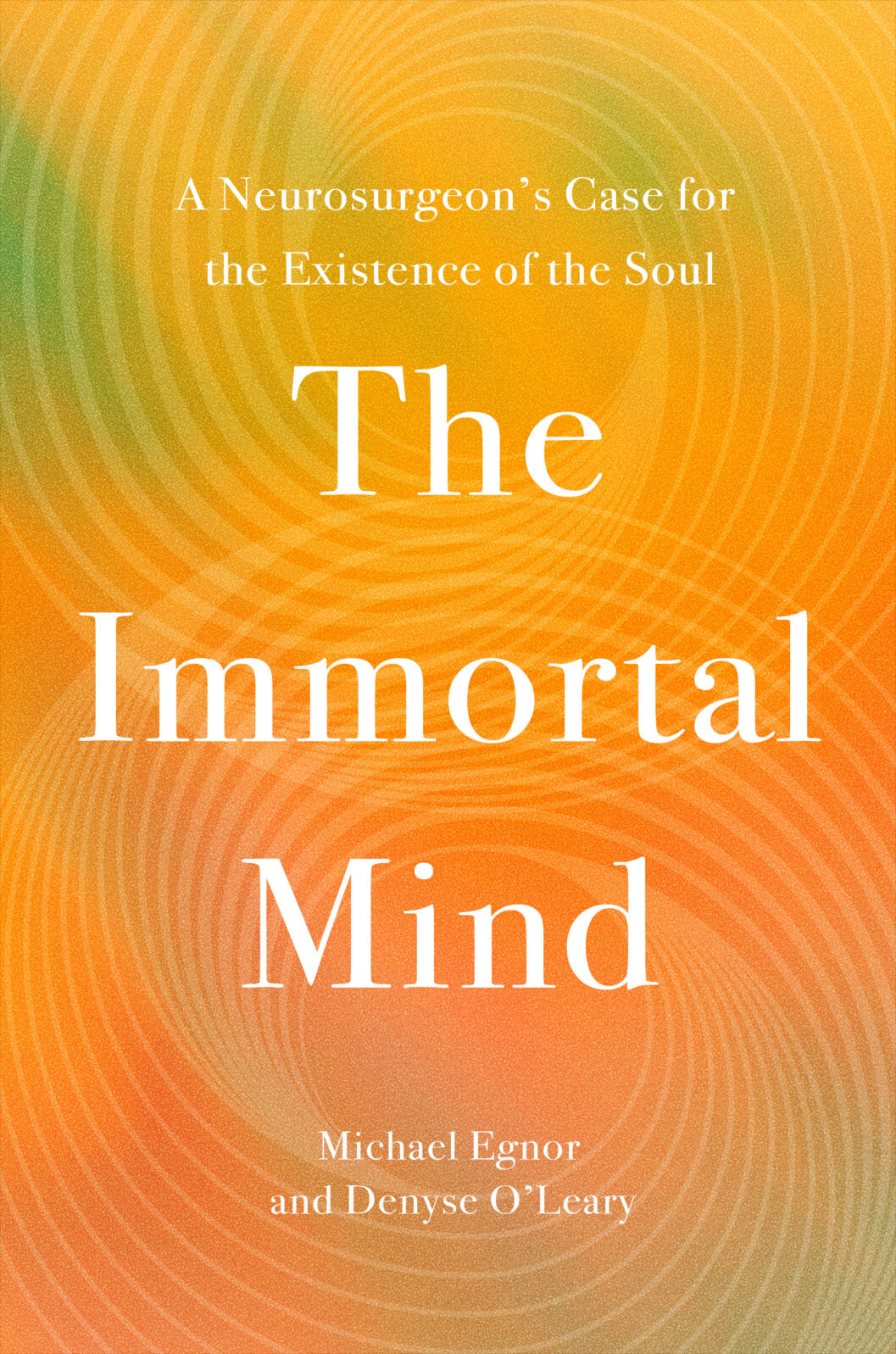Michael Egnor: The Neuroscience Evidence for Free Will
You ask a hundred neuroscientists about Libet's work and 95% will say he disproved free will, when he did exactly the oppositeIn his discussion with Pat Flynn, neurosurgeon Michael Egnor talked about the way that neuroscience experiments, often claimed in popular science writing to disprove free will, actually demonstrate it. The first three excerpts from that interview, offered with notes, are here, here, and here.
Dr. Egnor offers examples from neurosurgery and neuroscience of free will in action. Some selections from that portion of the transcript follow:
From the work of pioneer neurosurgeon Wilder Penfield (1891–1976):
Egnor: There’s another experiment that Penfield did that also gives materialism a real problem on free will, which is very interesting. Penfield had been a philosophy major in his undergraduate years and was very interested in the question of free will. So when he would map the brain in these 1100 patients, he would always identify if he was in that region of the brain, the motor strip, which is an area of the cortex that controls movement on the opposite side of the body.
The brain has no sensation of its own. That is you can stimulate the brain and the brain doesn’t feel anything. And the patients who were having the surgery were under surgical drapes, so they couldn’t see what he was doing.
So he had a very clever experiment. He would ask the patients every once in a while during the surgery, “I want you to raise your right arm under the drapes. And every once in a while, I will stimulate the arm area of your brain and I’ll make your right arm raise. And so whenever you see your right arm raising, I want you to tell me, did you do it or did I do it?”
And every time he did it, or every time the patient did it, the patient got it right. Nobody was confused about whether they moved their arm or Penfield moved their arm. And Penfield said he couldn’t find anywhere in the brain where he could trick somebody into thinking that they voluntarily moved their arm when they didn’t.
And he said, so that means that free will is real and that free will isn’t in the brain because there’s no area of the brain where you can stimulate and simulate free will.
He also talked about the free will experiments of Benjamin Libet (1916–2007), who is often incorrectly claimed to have disproven free will:

Egnor: But the most interesting research on free will came from Benjamin Libet who was a neuroscientist in the mid-twentieth century. I think Libet should have won the Nobel Prize. And I think probably the reason he didn’t was because the stuff he had was so fascinating and cutting edge that they were a little skittish. It was like THEY weren’t sure it was real, but it turns out it is real. I mean, there’s been a lot of follow up on it. But he did beautiful work.
His obsession was with what he called mind time. And what he meant by that is he wanted to know exactly what’s happening inside your brain at the moment you have a thought. Most of the studies that have been done of brain waves and thinking and so on, they don’t link time and thinking in a way that allows you much resolution. That is, you can’t say, well, at this moment, down to the 10 millisecond mark, I was thinking of this and this thing was happening in my brain. So he wanted to know at the exact moment, what is your brain doing?
So he devised an experiment on free will. It’s become rather famous. he took [neurologically] normal volunteers. He put electrodes on their scalps to measure their brain waves. He sat them at a table and he put a button in front of them. And he asked them to “just go ahead and push the button whenever you feel like it. Just say, I’m sitting here, I’m enjoying, it’s a nice day out. I think I’ll push the button. You just push the button.” He had an oscilloscope, which looked like a clock in front of these people.
And he asked them, when you decide to push the button, just glance at the exact moment you made that decision on the oscilloscope and let me know what that time was. And they could get it down to, that’s like the 20 millisecond level.
He did hundreds of trials on each person. And so he could tell within like 20 milliseconds when the person made the decision to push the button. He had brain waves monitored constantly during this, and he had monitoring of when the button was actually pushed.
So what he found was that, around half a second before you consciously make a decision to push the button, there’s a spike in brain wave activity in your brain. And that brain wave activity happens before you consciously decide. And then you consciously decide half a second later. And then maybe two-tenths of a second later, you push the button.
So he said, at first glance, it looked like you didn’t really freely choose to push the button. It looks like your brain kind of fired.
And then suddenly you think, oh wow, I just decided to push the button. But no, your brain made you do it.
But being a really good scientist…
Egnor: But being a really good scientist, he took the research one step further and he asked people who were doing this, when you decide to push the button, every once in a while, veto your decision. So actually, when you say, I’m going to push the button, say immediately, oh, no, I’m not, I’m not going to push the button. And he looked to see what the brainwaves looked like when people did that.
And what he found was that the brainwaves didn’t do anything new. There was no new brainwave to the veto. So he concluded from all of this that what was happening was that the brain in a sense was giving you temptations. The brain was kind of pre-consciouslyaying, hey, why don’t you push the button? And you go in and start to push the button, but you have to accept or reject that unconscious thing. And your acceptance and rejection isn’t from the brain. It’s free. It’s spiritual of sorts.
Subsequent research has continued to cast doubt on the idea that Libet disproved free will. He himself quipped that he had discovered the existence of “free won’t.
Why don’t we hear much about the neuroscience evidence in favor of free will?
Egnor offers some sobering reflections:

Egnor: You ask a hundred neuroscientists about Libet’s work. 95% will say he disproved free will, which he did exactly the opposite. And I think part of the reason is just ignorance, they actually probably haven’t read what he did. The second thing, which is very real, is that science is a very, there’s a lot of herd instinct in science. And the reason is that your entire professional survival depends on approval by other scientists.
I mean, I have a friend who’s one of the leading biologists in the world. He’s a very, very accomplished guy. And I was at a meeting with him, and he knows I’ve been involved in the intelligent design movement. And he came up to me at one point and he said, I know what you’re doing in the intelligent design movement, and I think you’re exactly right. He says, but I can’t say a word about it, I can’t say a freaking word. He said, if I were ever to make a public statement that I agreed with that… I’ll never see another grant.
He said, literally, I would lose my family’s health insurance. He said that I would have to work in McDonald’s. Said that I would be completely blackballed. So scientists, there’s a viciousness in the way scientists approach this. Any scientist who comes out with a dualist perspective is toast.
Egnor, who is a professor of neurosurgery and pediatrics at Stony Brook University in New York State, added significantly, “Being a clinical doctor has made my life a lot easier because I kind of have a day job, and so it doesn’t really affect me. But if I were a basic scientist and I relied on grants to live, I’d be toast.”

Dr. Egnor and Denyse O’Leary are the authors of The Immortal Mind: A Neurosurgeon’s Case for the Existence of the Soul (Hachette Worthy, June 3, 2025).
Here are the three previous excerpts from the transcript, with notes:
Is materialism slowly losing its death grip on science? If it is, neuroscience discoveries will play a key role, neurosurgeon Michael Egnor tells podcaster Pat Flynn, in a recent podcast interview. Materialism is a totalistic claim. If the human mind is not simply the physical processes of the brain, with no remainder, then materialism is disproven.
What brain surgery for epilepsy taught us about the human mind. Michael Egnor continues his discussion with Pat Flynn, noting that neither seizures nor Penfield’s brain stimulation provoked abstract thought. The claim that we will find a materialist explanation some day, no date specified, means that we never reckon with failure to do so.
and
What did splitting human brains in half tell us about the mind? How did split brain study subjects compare things when no part of their brains saw both things? As Michael Egnor told Pat Flynn, research of this sort — where split brains provide united perceptions — is an unacknowledged problem for materialism.
